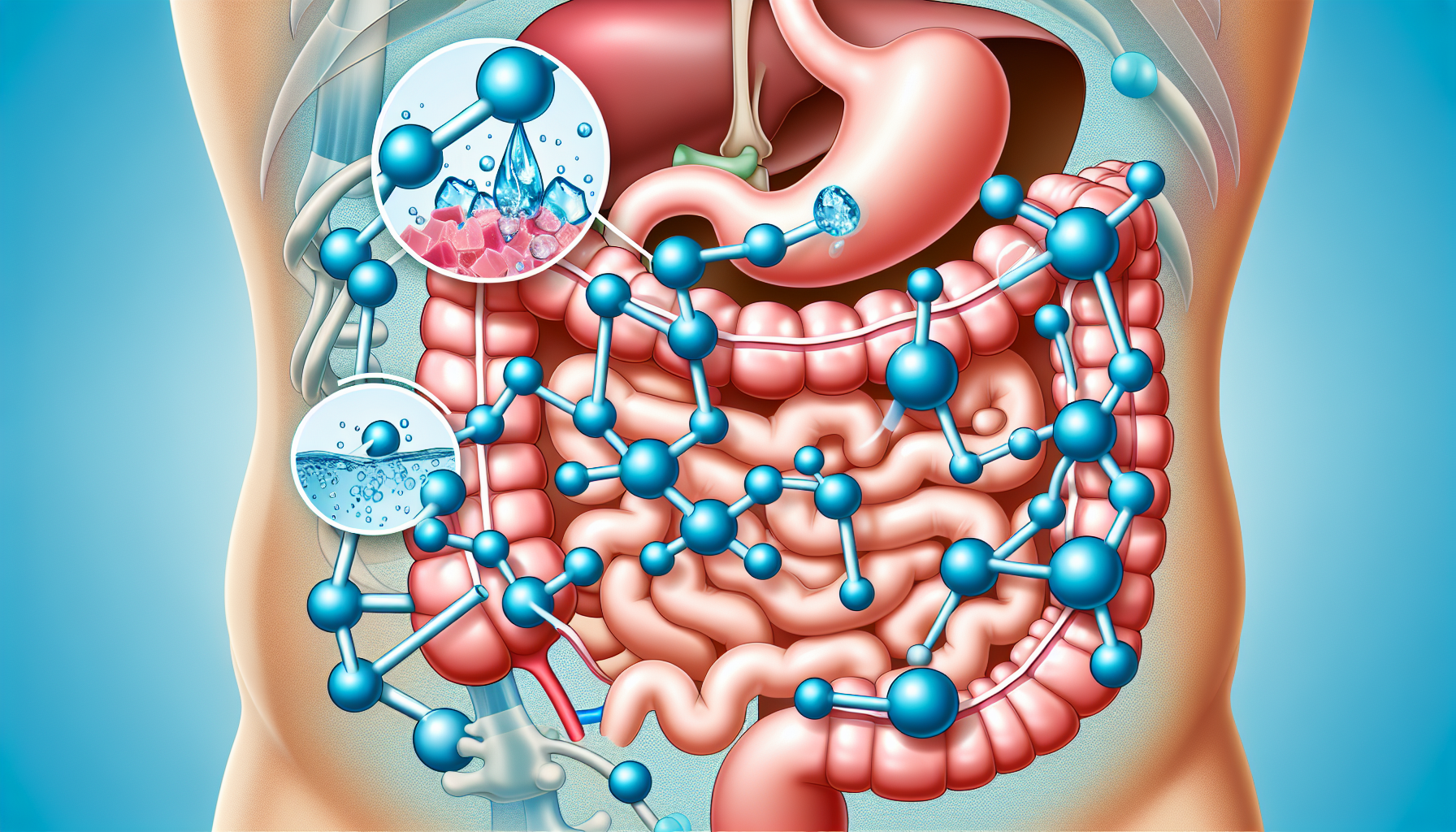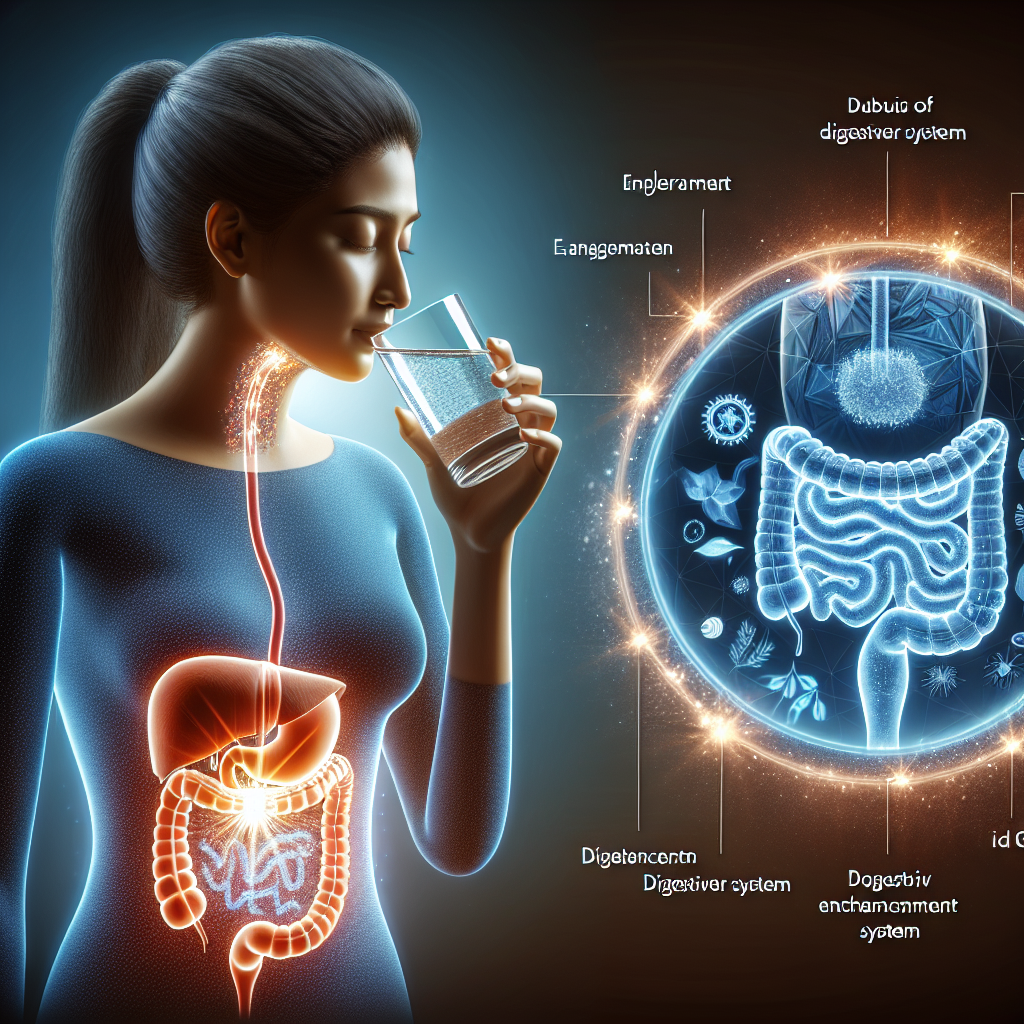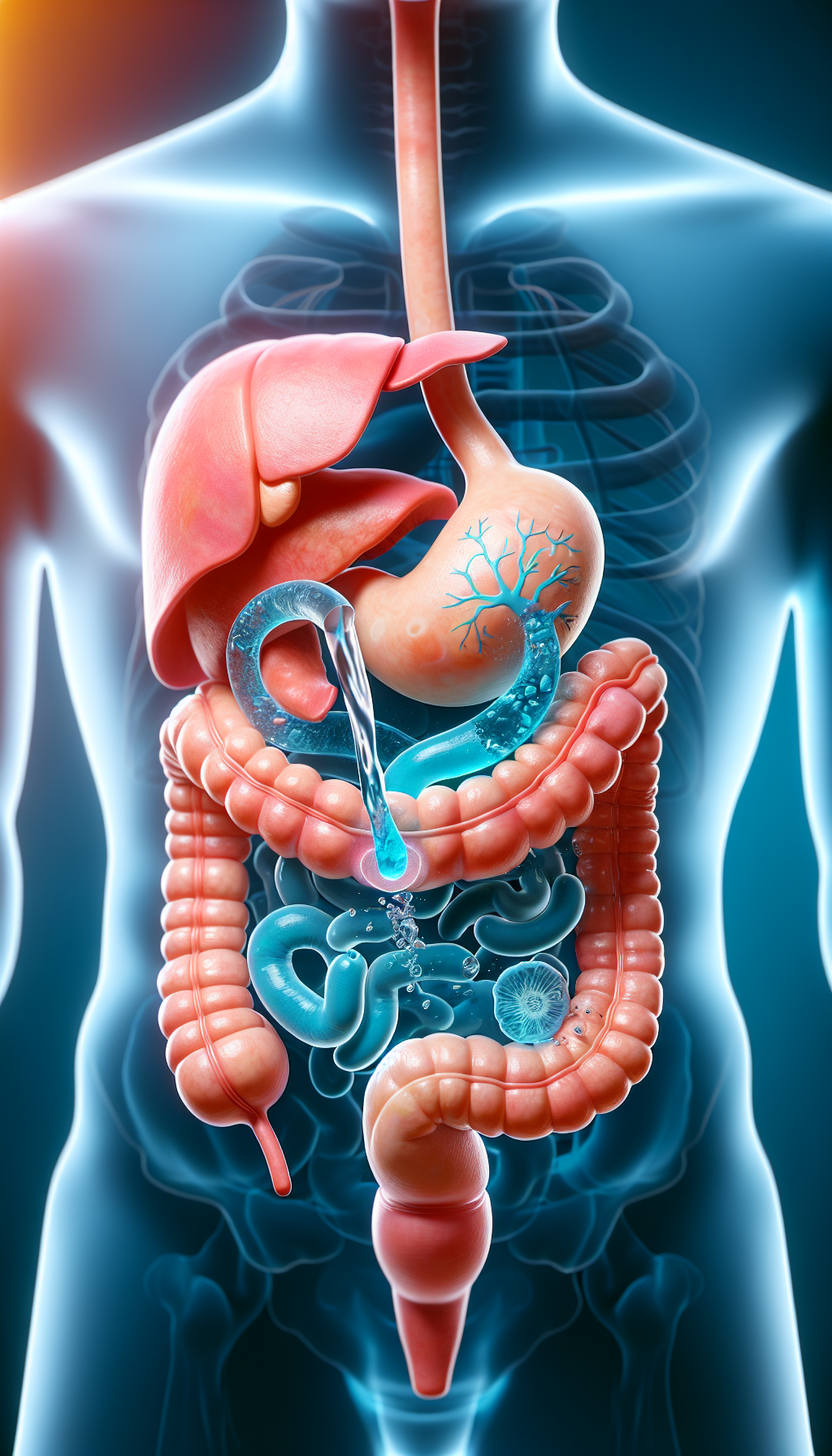Water is the essence of life, and its role in maintaining a healthy body cannot be overstated. More specifically, proper hydration is intimately connected to digestive health. This article will explore the multifaceted ways in which staying adequately hydrated can support and enhance your digestive function, ultimately contributing to your overall well-being.
The Importance of Water in Digestive Health
The human body comprises about 60% water, which plays a crucial role in every bodily function, including digestion. Water helps to break down food so that your body can absorb the nutrients. It’s also essential for dissolving minerals, vitamins, and other nutrients from your food. Moreover, it allows these substances to pass through the intestinal wall and into the bloodstream.
Saliva Production
Hydration begins with saliva, the first step in the digestive process. Adequate fluid intake ensures that your salivary glands can produce enough saliva, which contains enzymes that start breaking down carbohydrates and fats. When you’re not drinking enough water, saliva production decreases, leading to a less efficient initial stage of digestion.
Smooth Digestive Process
Once food reaches the stomach, water continues to play a critical role. It helps to create a smooth, churnable consistency, making it easier for the stomach to break down food into a liquid mixture called chyme. From there, it’s on to the intestines, where water helps to dissolve fats and soluble fiber, allowing these to be absorbed more readily into the body.
Preventing Constipation
Water is also crucial for preventing constipation. It softens stools and helps maintain regular bowel movements. When the body is dehydrated, the colon pulls water from stools to maintain hydration, which can lead to harder stools that are difficult to pass. Drinking enough water, combined with a diet high in fiber, is often recommended as the first step in tackling constipation through diet and lifestyle changes.
The Role of Hydration in Nutrient Absorption
Water doesn’t just aid in the breakdown and transportation of nutrients; it’s also vital in the absorption process. The small intestine absorbs most of the water we drink, and it’s here that nutrients pass through the intestinal wall and into the bloodstream. Proper hydration ensures that the bloodstream is adequately diluted and can transport these nutrients to various parts of the body.
For more detailed insights into maintaining a healthy digestive system, consider reading about digestive health on Avix Health.
How Much Water Should You Drink?
The amount of water needed can vary based on individual factors such as age, weight, climate, and levels of physical activity. However, a good rule of thumb is to drink at least eight 8-ounce glasses of water per day, known as the 8×8 rule. It’s also important to listen to your body’s signals of thirst and to drink water with each meal.
The Link Between Hydration and Digestive Diseases
Chronic dehydration can contribute to digestive disorders. For instance, lack of water can exacerbate conditions like gastritis, acid reflux, and ulcers, as there is less protective water to line the stomach and dilute strong gastric acids. Keeping well-hydrated is a simple yet effective way to support your stomach lining and reduce irritation.
Enhancing Digestive Enzyme Function
Digestive enzymes require a certain level of hydration to function optimally. When you’re well-hydrated, enzymes work effectively to break down food into nutrients. Dehydration can inhibit these enzymes, making digestion sluggish and less efficient.
Water and Digestive Balance
A balance of good bacteria in the gut is essential for digestive health. Water aids in the overall balance of these bacteria, and staying hydrated is a component of maintaining a healthy gut microbiota. In addition to hydration, consider exploring the role of gut bacteria in metabolism and weight control for a comprehensive understanding of gut health.
External Resources Supporting the Importance of Hydration
For further reading on the importance of hydration and digestive health, the following resources provide detailed information:
- A study by the American Journal of Gastroenterology examines the relationship between fluid intake and the risk of constipation.
- The National Center for Biotechnology Information offers research on the role of water in nutrient absorption.
- The Institute of Medicine provides guidelines on the adequate intake of water for men and women.
These resources offer in-depth knowledge and support the vital role that hydration plays in maintaining a healthy digestive system.
Conclusion
In conclusion, proper hydration is not just about quenching thirst—it’s a fundamental aspect of digestive health. From saliva production to nutrient absorption, every step of the digestive process relies on adequate water intake. By understanding the importance of hydration, you can take proactive steps to support your digestive system and enhance your overall health.
Remember to pay attention to your body’s hydration cues, and make water a central part of your daily routine. For more information on improving your digestive health through diet and lifestyle changes, read about the digestive benefits of a Mediterranean diet and how proper hydration fits into a balanced and healthful eating pattern.



